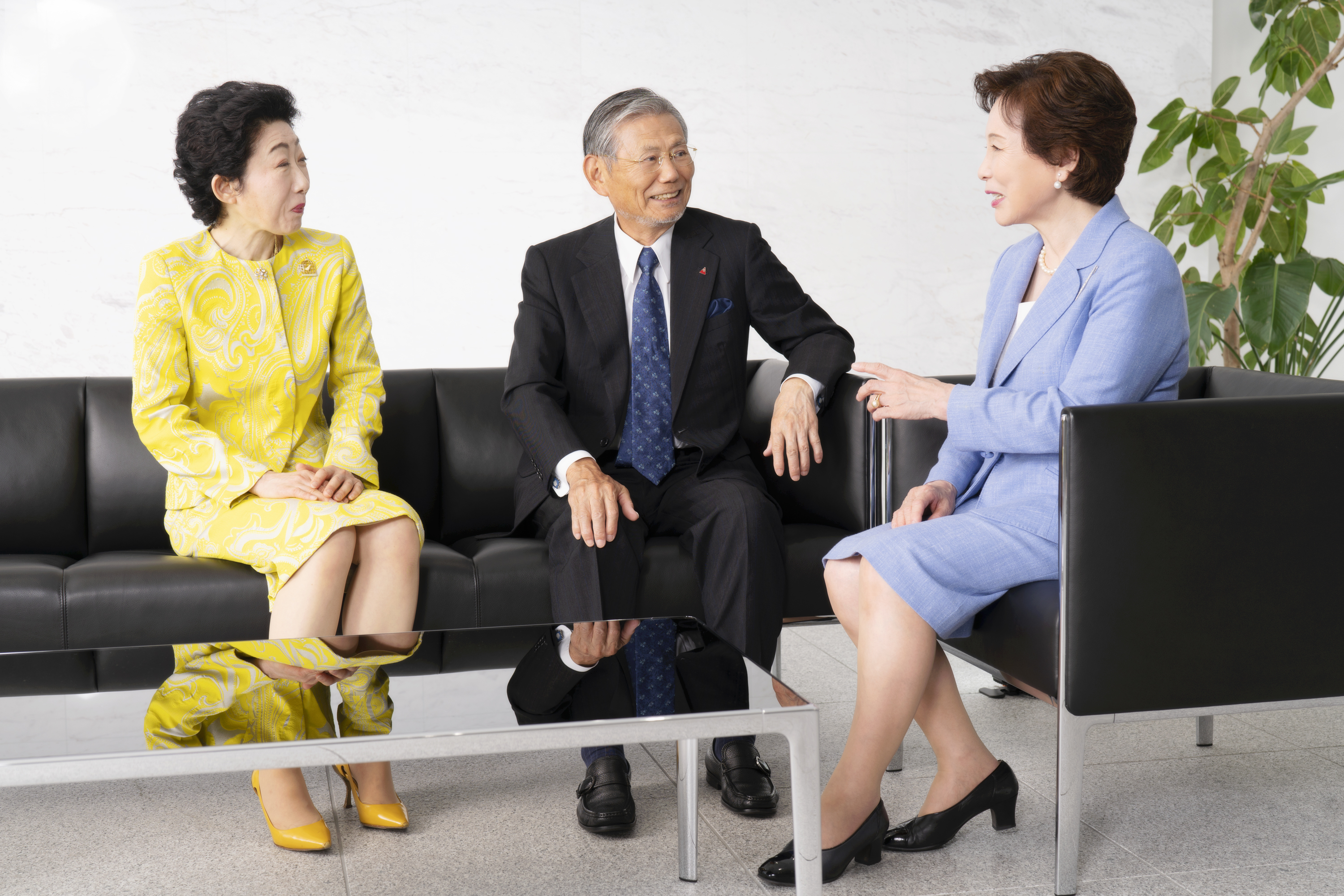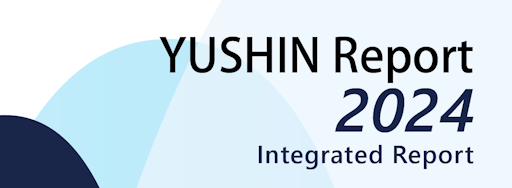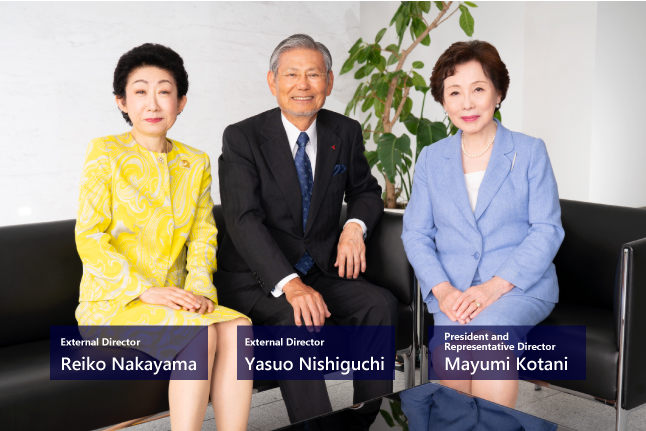
1999 President and Representative Director of Kyocera Corporation
2005 Chairman of the Board and Representative Director, and Chief Executive Officer of Kyocera Corporation
2006 Advisor and Director of Kyocera Corporation
2014 External Director of YUSHIN PRECISION EQUIPMNT CO., LTD. (To the present)
2020 Chairman and Director of YAMADA Consulting Group Co., Ltd. (To the present)
2000 General Manager of Investment information of Marusan Securities Co., Ltd.
2004 General Manager of Underwriting of Marusan Securities Co., Ltd.
2016 Director of LUCKLAND CO., LTD (Audits Committee) (To the present)
2018 External Director of YUSHIN PRECISION EQUIPMNT CO., LTD. (To the present)
2019 External Director of Mandom Corporation (To the present)
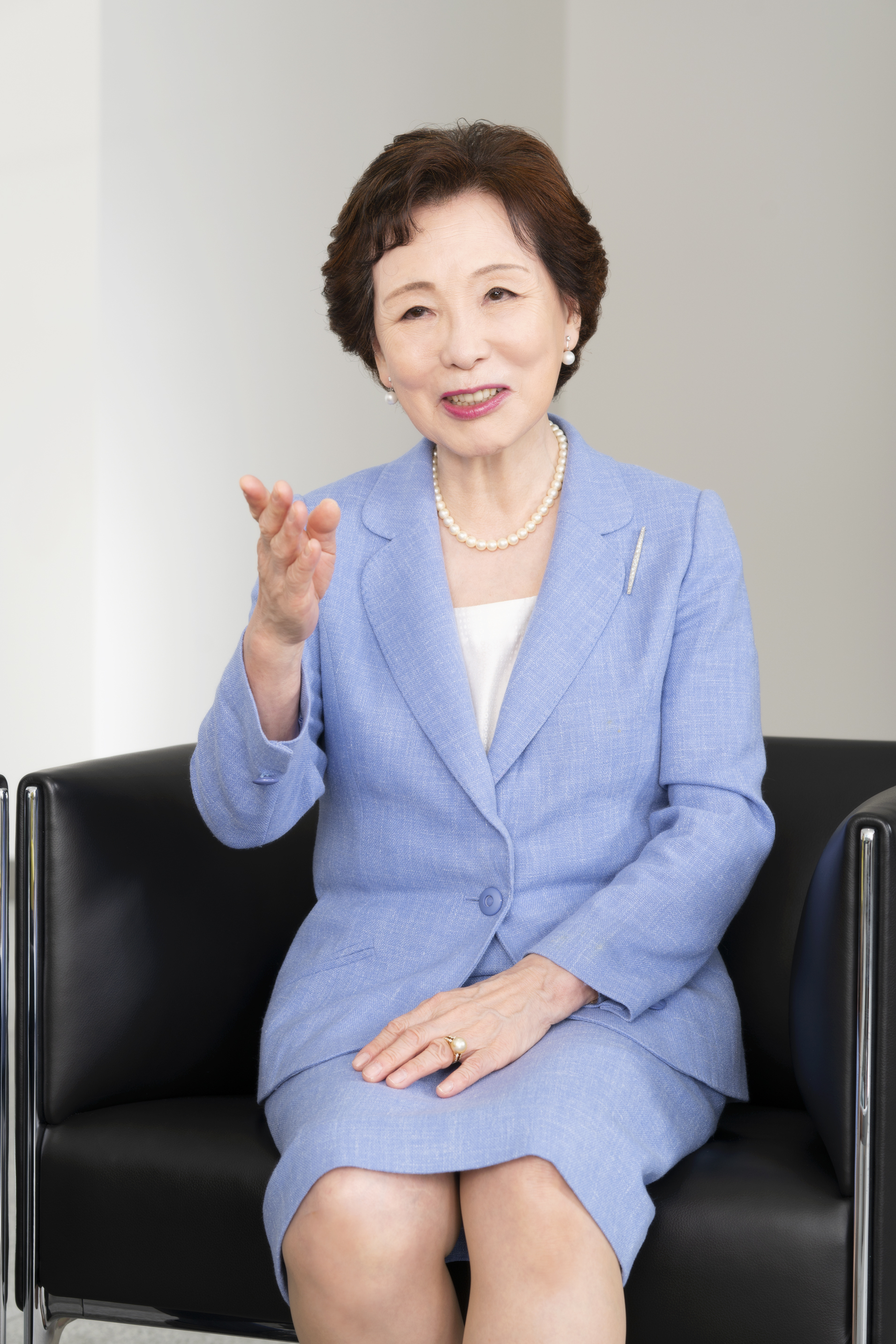
Kotani: Since our founding, we have consistently developed our business by specializing in factory automation, especially robots to take plastic products out of injection molding machines. In the process, we received many technical requests from client companies. This has led to the accumulation of new technologies and businesses. The spread of COVID-19 has been occurring, and it is undeniable that this will have a significant impact on our company. However, by using the technology we have developed, we can produce products that are suited to the new era of coexisting with the virus. We feel this is an opportunity. We specialize in automation, and we believe that we have an affinity with the need to reduce the number of people in the factory.
Nishiguchi: That's exactly what it is. Companies always try to set up new businesses and use them as a new source of revenue, but the path is not flat, and many businesses fail. However, our current core businesses were also new businesses when we were founded. While remembering that time, now that the company has grown in size, the president needs to lead the way in developing new businesses and has to support the person in charge.
Kotani: About a year ago, we started an executive meeting to flesh out the internal improvements, and to launch the next business. In the meeting, we discussed about how we are going to sell a conventional product which we have not been cultivating the market eagerly. This product is called the PA series which can load and unload cardboard boxes or cases on and off pallets. The robot is simple and easy to handle and does not take up much space. Although it does not move at high speed like a take-out robot, it can load and unload boxes in a factory or a warehouse without requiring a lot of manpower. It is exactly what people need today. We believe this product will enable us to attract new customers from different industries.
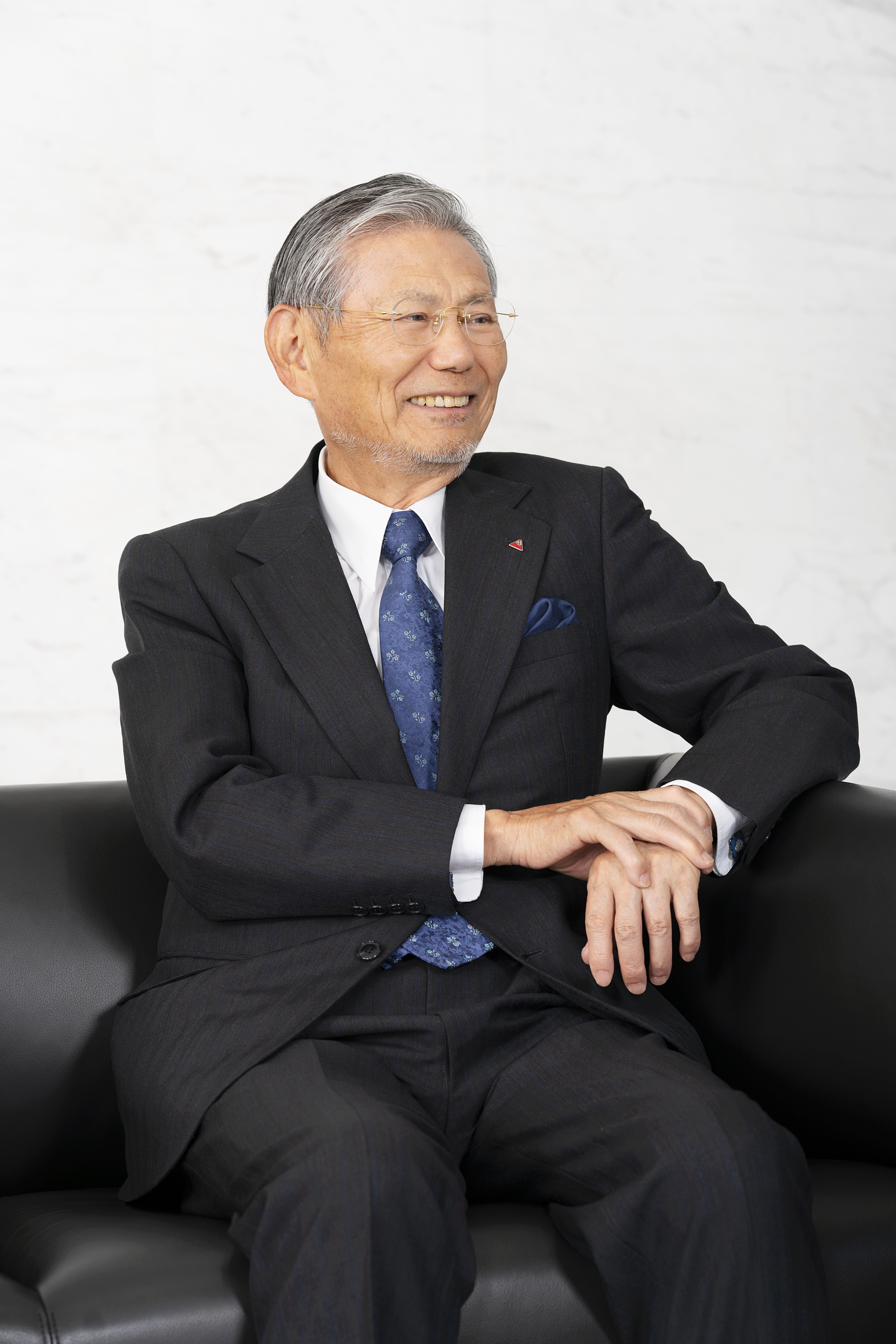
Nishiguchi: The product you just mentioned looks very promising. I think there is a lot of needs for this product in situations where people are loading and unloading manually. It is important to rearise why you decided to start working on this existing product now. I feel that our company is now being asked to develop a clear growth strategy, both internally and externally. In order to take our company to the next stage, we must not only expand our existing mainstay products, but also developing new pillars is necessary. To make it a new pillar, we need to set clear goals and think through how we can achieve them. We should have a strong awareness of the goal and strengthen the organization to achieve it.
Nakayama: From my experience as a securities analyst, I would say that our company's investor relations is subdued. For the first few years after we went public, we were perceived as a high-growth venture with a niche top and the company has received a commensurate evaluation, so we didn't have to do anything. I feel that we have now entered a period of stability in terms of performance. In addition, what investors are looking for in a company today is becoming more diverse and complex, so it is important to communicate in a way that is easy to understand. First and foremost, we need to set a clear goal of "what and how by when" and set numerical targets and explain it properly to the outside world. If we can actually get our business results there, our reputation in the stock market will change. These days, it's not enough to simply increase sales and profits. Cash flow and capital cost are also emphasized as a goal of corporate management from the shareholders' perspective. Furthermore, various things are now required, such as significance of the company's existence in society, awareness of stakeholders and consideration for the environment. And not only shareholders but also young people of the future see the companies in terms of their contribution to society not only in terms of name recognition and salary. We will have to account for all of those things in total. I know our company is committed to making it easy for all employees to work and to improving the environment of the company and the plant.
Kotani: Yes, even with the system that we take for granted, it seems that there are many things that we are fortunate compared to other companies. It is easy for employees to take leave for childbirth and childcare and shortened work hours. It is not unusual for men to take childcare leave and shortened work hours as well. In addition to offices and plants, we also consider the livability of the cafeteria and bathrooms in our headquarters plant. Under the state of emergency, employees are required to work from home as much as possible to prevent the spread of the COVID-19.
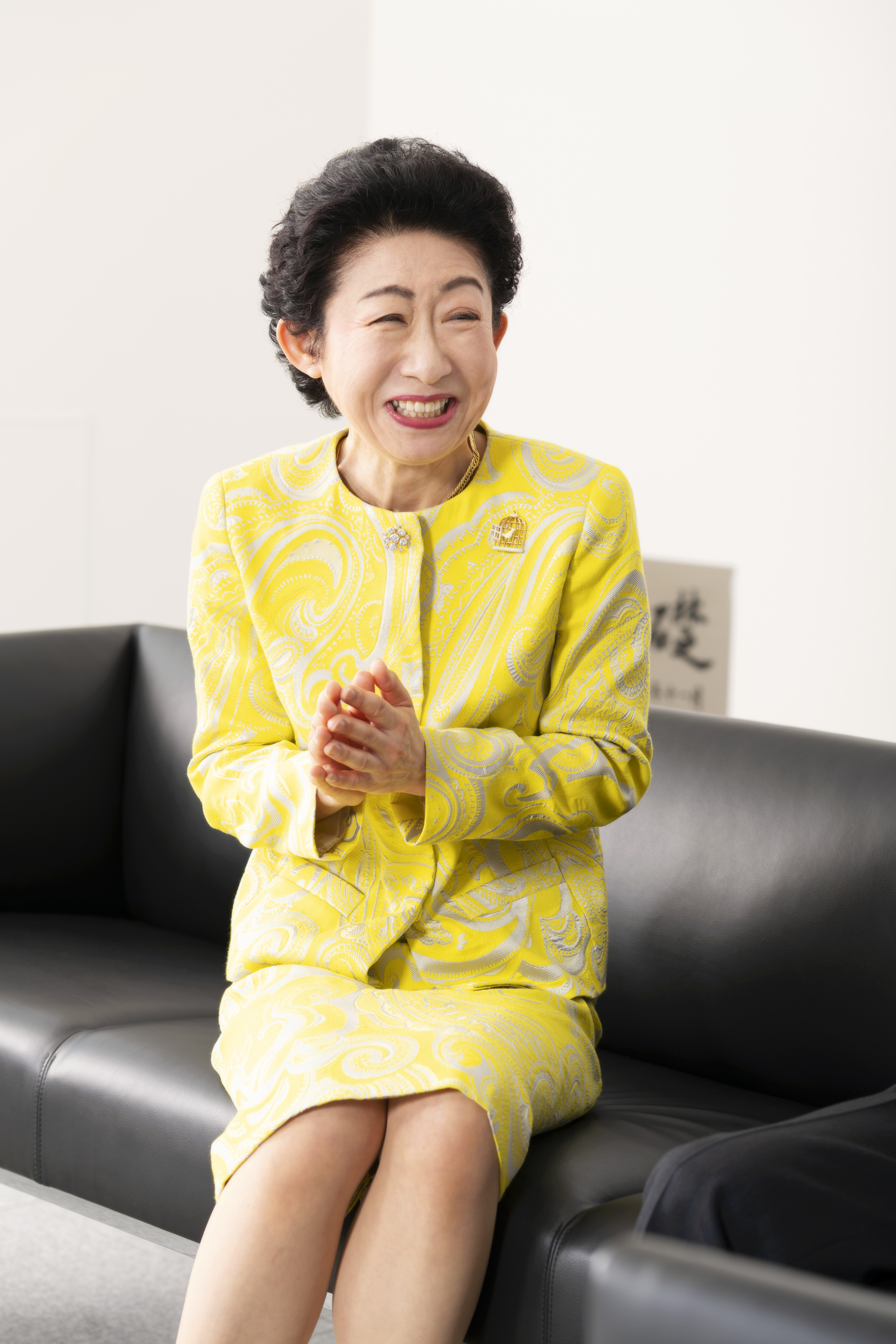
Nakayama: As an outside director of the company, I believe my role is to further strengthen the company's governance from an investor's perspective and to provide advice on how to improve corporate value. We have recently established a new Nomination and Compensation Committee. I would like take this opportunity to create a remuneration system in which directors are more aware of their responsibilities and are incentivized to achieve their goals. I would also like to see our future executive candidates develop that mindset early on. Directors and other executives of listed companies tend to focus on setting annual budgets and executing them. However, this alone will not increase corporate value. From a medium- to long-term perspective, we should have a strong awareness of "What do we want to do with this company, and what must be done to achieve this? "
Nishiguchi: Today, the president, a founding member of the company, is leading the company. But eventually, directors and officers who do not know hard work of the founding will be leading the company. Fortunately, we have plenty of cash to spare. I would like you to have the guts to invest in employees who want to take on the challenge of starting a new business from new ideas. In the end, it is people who launch new businesses. Now is a great time to train people with creativity.
